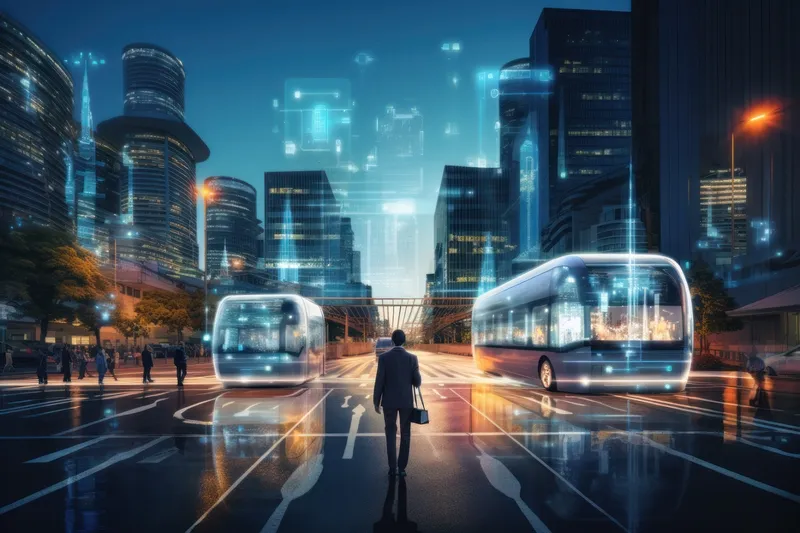The European Committee of the Regions (CoR) is concerned by the lack of investment by the EU in the transport sector. According to regions and cities, very little progress has been made also in integrating the European transport market in the last four years. These concerns were debated by CoR members at the 16 April plenary session, which saw the adoption of the opinion on the implementation of the 2011 European Commission White Paper on Transport, aiming to create a single European transport area.
The
April 21, 2015
Read time: 3 mins
The European Committee of the Regions (CoR) is concerned by the lack of investment by the EU in the transport sector. According to regions and cities, very little progress has been made also in integrating the European transport market in the last four years. These concerns were debated by CoR members at the 16 April plenary session, which saw the adoption of the opinion on the implementation of the 2011 1690 European Commission White Paper on Transport, aiming to create a single European transport area.
The CoR shares the objectives of the Commission to transform the European transport system by promoting independence from oil and creating multimodal mobility. Nonetheless, it raised concern that the Juncker plan will siphon off US$2.9 billion "when the budget is already too small to build the trans-European transport network". The CoR Regions regrets the EU's "clearly inadequate investment" in a sustainable transport system and emphasises that transport is a key part of the EU's economy and that it must continue to be a major European policy.
Furthermore, the opinion points out the need to make the European transport sector more competitive. To this end, it calls for promoting and ensuring free movements of goods and products within the EU internal market. However, the CoR stresses that, even though this is especially important in the road transport sector, no relevant initiatives to deepen the internal market have been undertaken so far.
In addition, the regions pointed out that very little progress has been made in the field of pan-European information on multimodal transport and ticketing services. Also, they raised concern on the fact that currently most Member States still do not have a national system bringing together all predefined transport timetables in operation. Having this could make the use of public transport much more appealing to travellers, they assured.
With regard to rail and road transport, EU regions called for a stronger modal shift from road to trail as well as for promoting interoperability between rail systems. However, they asked that equal attention is given to urban public transport, since it can have the" strongest immediate impact" on environment and on life quality of citizens, especially in the most densely populated regions of the EU.
The need to reduce traffic in big airports was also stressed, especially because this would help reduce air pollution. To do so, EU regions and cities recommended connecting international air transport hubs to global TEN-T networks, as well as creating transport chains for passengers and freight. This would make it possible to reduce saturation of the airports and improve the energy performance of this type of transport, according to the regions and cities.
The CoR shares the objectives of the Commission to transform the European transport system by promoting independence from oil and creating multimodal mobility. Nonetheless, it raised concern that the Juncker plan will siphon off US$2.9 billion "when the budget is already too small to build the trans-European transport network". The CoR Regions regrets the EU's "clearly inadequate investment" in a sustainable transport system and emphasises that transport is a key part of the EU's economy and that it must continue to be a major European policy.
Furthermore, the opinion points out the need to make the European transport sector more competitive. To this end, it calls for promoting and ensuring free movements of goods and products within the EU internal market. However, the CoR stresses that, even though this is especially important in the road transport sector, no relevant initiatives to deepen the internal market have been undertaken so far.
In addition, the regions pointed out that very little progress has been made in the field of pan-European information on multimodal transport and ticketing services. Also, they raised concern on the fact that currently most Member States still do not have a national system bringing together all predefined transport timetables in operation. Having this could make the use of public transport much more appealing to travellers, they assured.
With regard to rail and road transport, EU regions called for a stronger modal shift from road to trail as well as for promoting interoperability between rail systems. However, they asked that equal attention is given to urban public transport, since it can have the" strongest immediate impact" on environment and on life quality of citizens, especially in the most densely populated regions of the EU.
The need to reduce traffic in big airports was also stressed, especially because this would help reduce air pollution. To do so, EU regions and cities recommended connecting international air transport hubs to global TEN-T networks, as well as creating transport chains for passengers and freight. This would make it possible to reduce saturation of the airports and improve the energy performance of this type of transport, according to the regions and cities.










